The Absolute Funniest Plot Of Nbc Hannibal Is The Fact That The Fbi Is Looking For A Serial Killer That
the absolute funniest plot of nbc hannibal is the fact that the fbi is looking for a serial killer that is highly skilled in evading the police and has been killing for decades in multiple countries, and then they hired a guy who showed up to work like this every day to catch him.




More Posts from Sayaosi and Others
As much as Koisenu Futari is a show about love, or the lack thereof, it also does show how it can show up in many ways.
The focus is aromanticism and asexuality, yes, but also, we see the different points of view of the people around and how they relate to those types of love.
We have the junior, who thought that there was a spark between them and instead of dealing with the rejection and misunderstanding like a man he just... took some time off work and asked to change departments.
We have Minori (the sister) who seems to live the perfect romantic life and is following what society (and her parents) ask of her, and at the end, despite her love and her dutiful follow of those rules, she's being cheated on and breaks from what society demands (the divorce).
We have Kazu, who sees romantic love in a very weird lense (in my opinion) but slowly, while still holding his ideals, he understands that others are not necessarily like him and not only he ends up by respecting them and more or less understanding them, but he also is a (somewhat) good ally.
We have Chizuru, who does love but is lesbian. She is bound (through her love for Sakuko) to suffer because of a love that cannot be reciprocated. We see her deeply love and feel, and yet we do not see this love being satisfied.
A good point here is that the blame is not brought to Sakuko. Chizuru clearly says that she, herself, is the one to love and the one to get away because she rather have a friend live her life without having to worry about something she doesn't care about than forcing an unwanted love on her (Sakuko).
We have Sakuko's parents too, who seem to live the perfect traditional life. The mother doesn't seem too old, which would suggest that she followed the advice she gave to her daughters: marry and have children young. And through the series, she shows rejection, because aromanticism doesn't fit her understanding of life, then a slight acceptation: she still doesn't get it and wishes for Sakuko to marry and have children, but she also understands that cutting ties with her daughter for not accepting her making her own choices is stupid at worse, foolish at best, especially since at the end she just wants her daughter to be happy.
Last but not least, we have Takahashi. He is the textbook of "older queer" as in he knows where he stands, he understands how he feels about what, he has a way to show and share his experience to others (the blog), he clearly is used (and bored/annoyed) by the world's romanticism etc and he had cut ties with his parents. We don't have much on the parents' thing, but, or he left them because he couldn't be bothered with them being such a pain, or his parents rejected him because he's aroace. Either way, he is a pillar for Sakuko while she goes through her own aroace journey.
So at the end, we not only have a show about aromanticism and asexuality, but we also see how this pressure, this allocisheteronormativity of society, makes it hard on everyone and not just those who do not fit/do not follow those invisible rules.
The aroace narrative is wholesome and very well done, but it would be foolish to turn a blind eye on those other details (and growth) of the characters, which makes this series punch you in the gut so hard.
I've been trying to watch more movies with Swann Arlaud in it so I watched Perdrix last night without knowing anything about the storyline. Definitely one of the strangest movies I've seen and also surprisingly funny. I would say it's worth the watch!
You are allowed to exist alone in public btw. You're allowed to go to the movies alone and go out to eat alone and hang out in a park alone and go for a walk alone and whatever else. It isn't weird or creepy, it doesn't make you lonely or a loser or whatever. You are allowed to just exist as yourself.
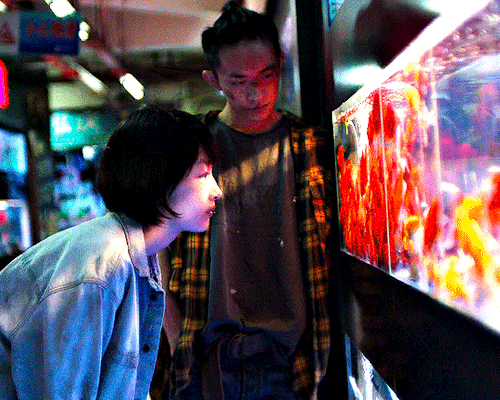
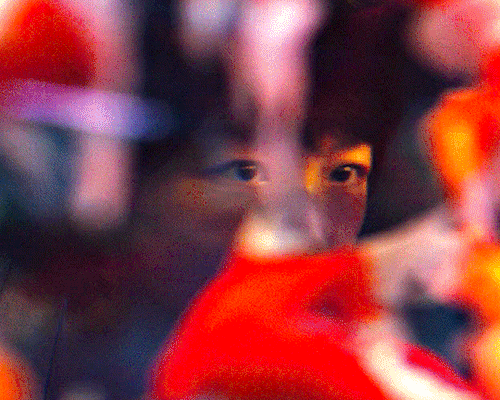

Better Days 少年的你 (2019) dir. Derek Tsang
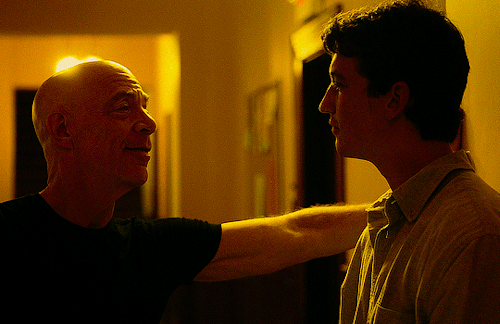




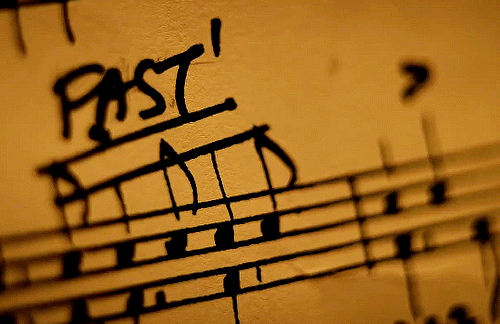




I’d rather die drunk, broke at 34, and have people at a dinner table talk about me than live to be rich and sober at 90 and nobody remember who I was. WHIPLASH (2014) Dir. Damien Chazelle
Can we stop acting like two people deeply loving each other has to mean they have something romantic or sexual going on? Can we stop talking as if platonic love just can't be that deep? Because that's not true. Platonic love can be just as deep, and sometimes even deeper, than romantic love. What I'm saying is, we need to stop putting romance on this pedestal and act like every other form of love is less important.
I watched Dear Ex a couple of days ago because it had been recommended in a lot of LGBTQ Taiwanese film lists to me. And it was a good film. But what I found really interesting was how the film’s thesis statement about motherly love is ultimately one I think a lot of queer people, especially queer people who grew up in cultures emphasising filial piety, could find really cathartic.
In the film, there’s a teenage boy who decided to live away from his overbearing mother with a gay man (who was also his dad’s lover; the gay man functions as a sort of stepfather figure to him now since his dad passed away). And as revenge, his mom outed the man to his elderly mother, assuming that it would ruin their relationship (earlier the elderly woman also expressed confusion and admitted to not really ‘getting’ queer relationships too, which supported the assumption). She also spends much of the film helicopter parenting her son. Which her teenage son makes clear that he dislikes.
Later on in the film, mother and son go and see a play that the gay man directed and acted in. The play bombed. But at the very end, the gay man’s elderly mother was there, and gave him a bouquet of flowers and hugged him. The film ends with the teenage boy living with the gay man now, and his mother visiting from time to time. The teenage boy and his mother’s relationship is also shown to have greatly improved.
And I found this interesting, because ultimately, the thesis statement (or at least one interpretation one can derive from it) of the film is about motherly love. Or more specifically, how sometimes a mother can best show her love by stepping aside and allowing her child to live their life according to what they believe is right for them.
And I think this message is something that I think can resonate with a lot of queer people, because I think one of the big pains that a lot of queer people face in their lives is unaccepting families. Families who do expect something out of their child without giving them the freedom to live their life. Especially in a society like Taiwan, where children are very heavily expected to be filial to their parents. To have a film talk about motherly/parental love in such a manner - that the mothers eventually stepped back and allowed their children to be themselves and live their lives - would be very cathartic for a lot of queer people.
I feel like I've never seen anyone talk about one of the reasons that being aro is so lonely is that we aren't really allowed to form deeper connections with people.
I'm not allowed to be too close to my friends because if I am then they'll read it as romantic. Their partners will think they're cheating on them with me.
I'm not allowed to touch other people in a way that's too friendly. I'm not allowed to cuddle with people. I'm not allowed to bare my heart and soul to people. I'm not allowed to hang out one-on-one with anyone. All of those things are reserved for people who aren't me. People who can't be me.
Yeah "more than friends" is stupid and friends can be just as important and close as romantic partners but what non-aro actually believes that? What non-aro would let go of their ownership of their partner for long enough to allow me to have any form of affection?
[Do not tag as ace/aroace or derail]
*a male and female character have a nice close platonic relationship that doesn't indicate any romance at all*
Me: Oh I am HERE for this!
*whoops, they fell in love*
Me: I'll be on my way.






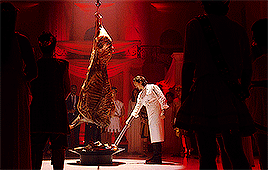

“What you eat represents your social status. It has nothing to do with love.” HUNGER (2023) dir. Sitisiri Mongkolsiri

-
 cle-ganes liked this · 5 days ago
cle-ganes liked this · 5 days ago -
 plutothegreat liked this · 5 days ago
plutothegreat liked this · 5 days ago -
 crowncrow1788 reblogged this · 5 days ago
crowncrow1788 reblogged this · 5 days ago -
 crowncrow1788 liked this · 5 days ago
crowncrow1788 liked this · 5 days ago -
 simplyworm reblogged this · 5 days ago
simplyworm reblogged this · 5 days ago -
 junaslagoon liked this · 5 days ago
junaslagoon liked this · 5 days ago -
 thora-otg-xp liked this · 6 days ago
thora-otg-xp liked this · 6 days ago -
 brokensoulmates2000 liked this · 6 days ago
brokensoulmates2000 liked this · 6 days ago -
 nugundams liked this · 6 days ago
nugundams liked this · 6 days ago -
 everett-e2 liked this · 6 days ago
everett-e2 liked this · 6 days ago -
 rainranrein liked this · 6 days ago
rainranrein liked this · 6 days ago -
 kenzie-dcp liked this · 6 days ago
kenzie-dcp liked this · 6 days ago -
 mountaingrovewasteland liked this · 6 days ago
mountaingrovewasteland liked this · 6 days ago -
 winterstarfall liked this · 6 days ago
winterstarfall liked this · 6 days ago -
 braveelephant2894 reblogged this · 6 days ago
braveelephant2894 reblogged this · 6 days ago -
 braveelephant2894 liked this · 6 days ago
braveelephant2894 liked this · 6 days ago -
 lesser-flamingo reblogged this · 6 days ago
lesser-flamingo reblogged this · 6 days ago -
 fandomsnerd reblogged this · 6 days ago
fandomsnerd reblogged this · 6 days ago -
 owltrix liked this · 6 days ago
owltrix liked this · 6 days ago -
 soda-tabs liked this · 6 days ago
soda-tabs liked this · 6 days ago -
 rangelssss liked this · 6 days ago
rangelssss liked this · 6 days ago -
 thatawkwardangel reblogged this · 6 days ago
thatawkwardangel reblogged this · 6 days ago -
 dreamfujolife liked this · 1 week ago
dreamfujolife liked this · 1 week ago -
 alutiel liked this · 1 week ago
alutiel liked this · 1 week ago -
 clad992 reblogged this · 1 week ago
clad992 reblogged this · 1 week ago -
 clad992 liked this · 1 week ago
clad992 liked this · 1 week ago -
 omgpurplefattie liked this · 1 week ago
omgpurplefattie liked this · 1 week ago -
 rosydruidess liked this · 1 week ago
rosydruidess liked this · 1 week ago -
 willsdogshelter reblogged this · 1 week ago
willsdogshelter reblogged this · 1 week ago -
 gleamingandwholeanddeadly reblogged this · 1 week ago
gleamingandwholeanddeadly reblogged this · 1 week ago -
 serenitynerd reblogged this · 1 week ago
serenitynerd reblogged this · 1 week ago -
 shine-bright-like-a-sirius liked this · 1 week ago
shine-bright-like-a-sirius liked this · 1 week ago -
 kissthewind reblogged this · 1 week ago
kissthewind reblogged this · 1 week ago -
 mitskisaidnobody liked this · 1 week ago
mitskisaidnobody liked this · 1 week ago -
 willdeanhay liked this · 1 week ago
willdeanhay liked this · 1 week ago -
 hicanivent liked this · 1 week ago
hicanivent liked this · 1 week ago -
 tostitrolx liked this · 1 week ago
tostitrolx liked this · 1 week ago -
 anxiousjarofsass liked this · 1 week ago
anxiousjarofsass liked this · 1 week ago -
 zombi3knife liked this · 1 week ago
zombi3knife liked this · 1 week ago -
 justanotherlonelybard liked this · 1 week ago
justanotherlonelybard liked this · 1 week ago -
 lilyllama101 liked this · 1 week ago
lilyllama101 liked this · 1 week ago -
 livinglifebesticanlol liked this · 1 week ago
livinglifebesticanlol liked this · 1 week ago -
 scarredtarts liked this · 1 week ago
scarredtarts liked this · 1 week ago -
 bl4ckb1rb liked this · 1 week ago
bl4ckb1rb liked this · 1 week ago -
 bubblegum-dog liked this · 1 week ago
bubblegum-dog liked this · 1 week ago -
 1tsdisco liked this · 1 week ago
1tsdisco liked this · 1 week ago -
 the2daily4scoop liked this · 1 week ago
the2daily4scoop liked this · 1 week ago -
 liv242 liked this · 1 week ago
liv242 liked this · 1 week ago

She/her | 22 | 🩷💛🩵-💚🩶🤍🩶💚Blogging about my various interests including TV shows, film, books, video games, current events, and the occasional meme. My letterboxed: https://boxd.it/civFT
123 posts